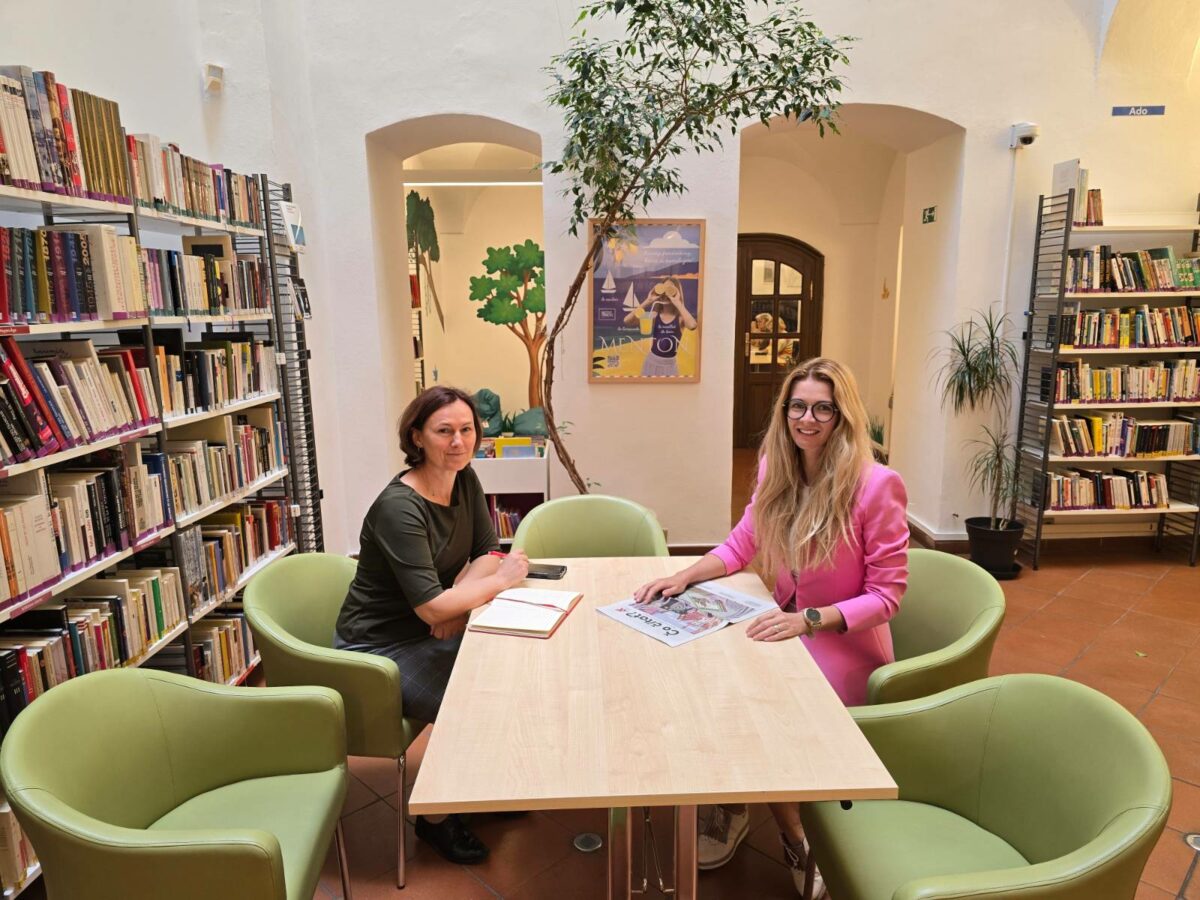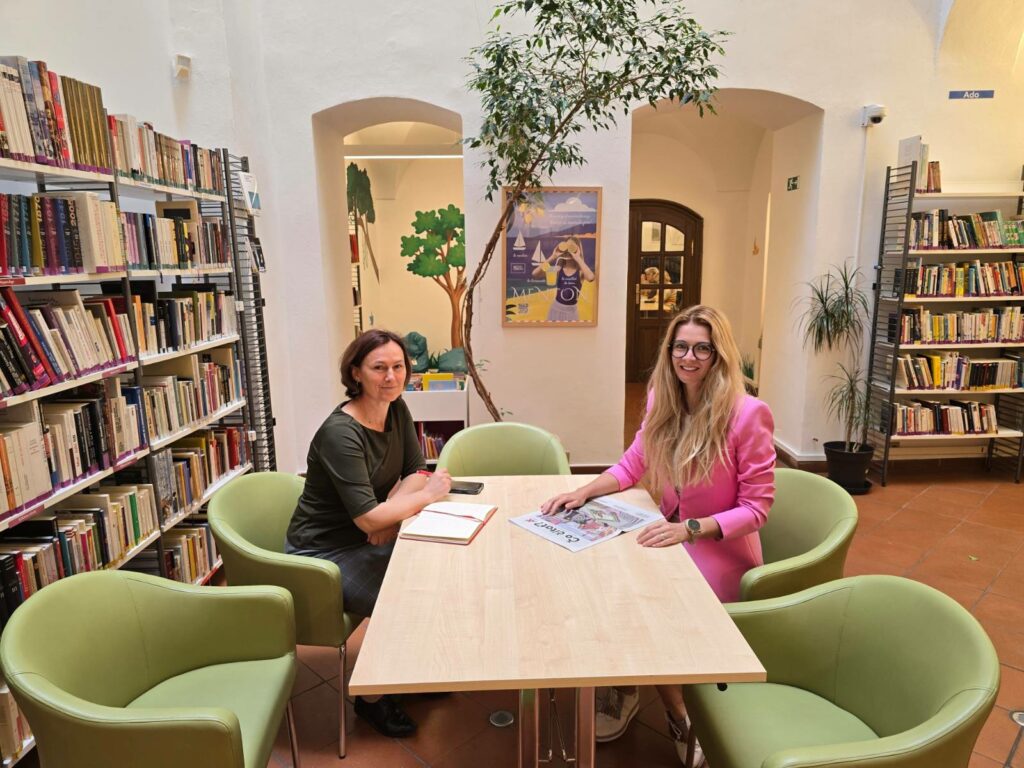HPC as a Bridge Between Slovak and French Research and Innovation
Today’s meeting at the French Embassy in Slovakia and the French Institute in Bratislava was held in the spirit of strengthening bilateral relations in the fields of research, innovation, and technological development. Thanks to open and constructive dialogue between the partners, it was possible to lay the foundations for concrete cooperation in the area of high-performance computing (HPC) infrastructure. Lucia Malíčková from the National Supercomputing Centre and the National Competence Centre for HPC held talks with Martina Saganová, Officer for University and Scientific Exchange Programmes, during which they jointly identified the potential to connect research capacities, exchange programmes, and technological initiatives between the two countries. The aim is to create an environment where expertise and innovation potential can flow across borders for the benefit of shared development.
The collaboration focuses on creating new opportunities for companies and institutions with ties to France – whether they are French businesses operating in Slovakia or organizations employing experts with experience in the French academic or research environment. An important aspect of the partnership will also be the support of mobility and exchange programmes, enabling the sharing of know-how and the development of sustainable cooperation networks.
High-performance computing plays a key role in addressing complex research and industrial challenges – from the development of new materials and climate modeling to advanced applications of artificial intelligence. It is precisely in this area that Slovak and French partners see significant potential for joint growth and capacity sharing, whether through access to supercomputing infrastructure, the development of software solutions, or support for small and medium-sized enterprises in their digital transformation.
The beginning of this strategic dialogue opens the door to long-term cooperation, with the ambition not only to strengthen scientific and research ties between Slovakia and France, but also to contribute to building a competitive European landscape in the field of digital technologies and computational power.
The launch of this strategic dialogue paves the way for long-term cooperation, aiming not only to strengthen scientific and research connections between Slovakia and France, but also to contribute to the development of a competitive European ecosystem in digital technologies and high-performance computing.
This cooperation thus represents an important step towards more effective use of scientific and innovation potential, the development of strong international ties, and the strengthening of both Slovakia’s and France’s position in the field of advanced digital technologies.
 BeeGFS in Practice — Parallel File Systems for HPC, AI and Data-Intensive Workloads 6 Feb - This webinar introduces BeeGFS, a leading parallel file system designed to support demanding HPC, AI, and data-intensive workloads. Experts from ThinkParQ will explain how parallel file systems work, how BeeGFS is architected, and how it is used in practice across academic, research, and industrial environments.
BeeGFS in Practice — Parallel File Systems for HPC, AI and Data-Intensive Workloads 6 Feb - This webinar introduces BeeGFS, a leading parallel file system designed to support demanding HPC, AI, and data-intensive workloads. Experts from ThinkParQ will explain how parallel file systems work, how BeeGFS is architected, and how it is used in practice across academic, research, and industrial environments. When a production line knows what will happen in 10 minutes 5 Feb - Every disruption on a production line creates stress. Machines stop, people wait, production slows down, and decisions must be made under pressure. In the food industry—especially in the production of filled pasta products, where the process follows a strictly sequential set of technological steps—one unexpected issue at the end of the line can bring the entire production flow to a halt. But what if the production line could warn in advance that a problem will occur in a few minutes? Or help decide, already during a shift, whether it still makes sense to plan packaging later the same day? These were exactly the questions that stood at the beginning of a research collaboration that brought together industrial data, artificial intelligence, and supercomputing power.
When a production line knows what will happen in 10 minutes 5 Feb - Every disruption on a production line creates stress. Machines stop, people wait, production slows down, and decisions must be made under pressure. In the food industry—especially in the production of filled pasta products, where the process follows a strictly sequential set of technological steps—one unexpected issue at the end of the line can bring the entire production flow to a halt. But what if the production line could warn in advance that a problem will occur in a few minutes? Or help decide, already during a shift, whether it still makes sense to plan packaging later the same day? These were exactly the questions that stood at the beginning of a research collaboration that brought together industrial data, artificial intelligence, and supercomputing power. Who Owns AI Inside an Organisation? — Operational Responsibility 5 Feb - This webinar focuses on how organisations can define clear operational responsibility and ownership of AI systems in a proportionate and workable way. Drawing on hands-on experience in data protection, AI governance, and compliance, Petra Fernandes will explore governance approaches that work in practice for both SMEs and larger organisations. The session will highlight internal processes that help organisations stay in control of their AI systems over time, without creating unnecessary administrative burden.
Who Owns AI Inside an Organisation? — Operational Responsibility 5 Feb - This webinar focuses on how organisations can define clear operational responsibility and ownership of AI systems in a proportionate and workable way. Drawing on hands-on experience in data protection, AI governance, and compliance, Petra Fernandes will explore governance approaches that work in practice for both SMEs and larger organisations. The session will highlight internal processes that help organisations stay in control of their AI systems over time, without creating unnecessary administrative burden.

